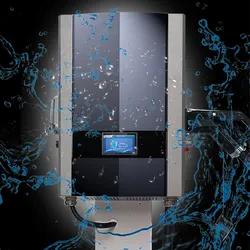
The rapid growth of electric vehicles (EVs) has led to the development of innovative charging technologies, including direct current (DC) fast charging. While DC fast charging offers significant advantages in terms of convenience and reduced charging times, recent research indicates that it may have detrimental effects on the health and longevity of EV batteries. This article aims to explore the various aspects of how DC fast charging impacts electric vehicle batteries and why it can be harmful to their overall performance and longevity.
One of the prominent drawbacks associated with DC fast charging is the increased heat generation during the charging process. Unlike slower AC charging, which dissipates heat more effectively, DC fast charging delivers a higher charging rate, causing the battery cells to heat up considerably. This excessive heat can accelerate the degradation of the battery cathode and anode materials, leading to reduced battery capacity and overall performance. In extreme cases, it can even pose safety risks.
DC fast charging utilizes higher charging currents compared to conventional charging methods. This higher current level leads to increased electrochemical stress on the battery cells, resulting in faster degradation of the active materials. The rapid movement of ions within the cell during fast charging increases the likelihood of side reactions and can lead to the formation of solid-electrolyte interphase (SEI) layers, reducing the battery's ability to store and deliver energy efficiently.
Continuous usage of DC fast charging, especially when it becomes the primary method of recharging, can significantly impact the overall health and longevity of EV batteries. Regularly subjecting the battery to high charging currents and increased heat generation can cause irreversible damage, leading to accelerated capacity fade and reduced battery lifespan. It is important for EV owners to strike a balance between DC fast charging and slower charging methods to preserve battery health in the long run.
While DC fast charging of electric vehicles offers undeniable convenience and reduced charging times, it comes at the cost of potential harm to EV batteries. Excessive heat generation, increased electrochemical stress, and frequent usage of this charging method can accelerate battery degradation and limit their performance and lifespan. It is crucial for stakeholders in the EV industry to further research and develop battery technologies that can withstand the challenges posed by fast charging to ensure a sustainable and long-lasting EV future.